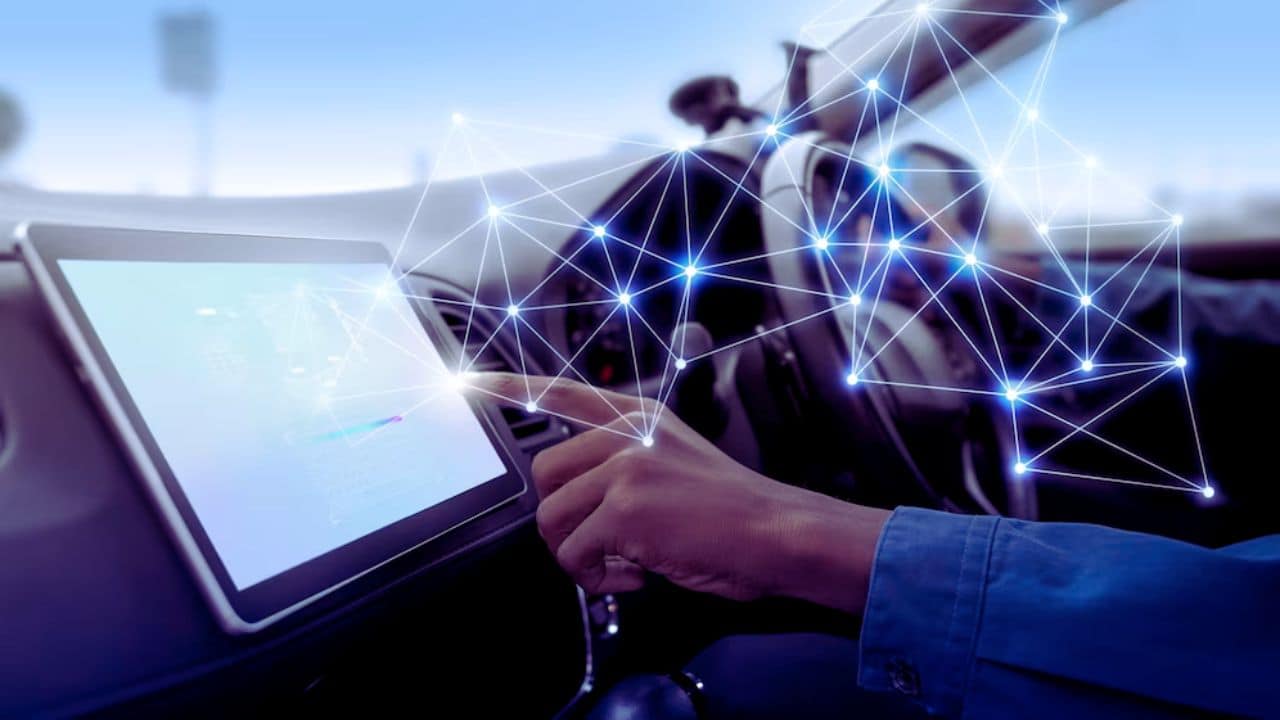Whether we realize it or not, technology now plays a pivotal role in transportation and impacts how we get around locally or trek across the globe. As emerging technologies continue to advance and become further integrated into daily life, what does this mean for the future of travel and what can we expect on our journeys in the years ahead?
The technological conveniences we now take for granted have simplified travel planning and execution more than ever before. However, potential downsides like distraction and over-reliance on devices also accompany the benefits. Examining both the pros and cons that technology introduces to modern journeys paints a picture of its multi-faceted effects.
Content Highlights
- Researching and booking travel is now highly streamlined thanks to meta search sites, reviews and mobile convenience for payments and itineraries.
- GPS maps and navigation apps provide helpful real-time tracking and turn-by-turn directions but risk over-reliance if used excessively.
- While technology affords predictive powers and convenience, travelers should be mindful of distraction from notifications and diminished destination presence.
- Leveraging tools as complements, not dominators, preserves space for meaningful cultural engagement and being truly present during journeys.
Biometrics
For many people, safety is the top concern when it comes to travel. Considerable progress has been made in that area thanks to biometrics. When compared to conventional identification techniques, biometric technologies such as facial recognition, iris scanning, and fingerprint scanning provide a higher level of security.
Biometrics has sped up airport security and immigration procedures, cutting down on wait times and doing away with the need for paper documents and human verification. By combining a person’s biometric information with their travel preferences and profile, biometrics also allow for individualized travel experiences.
Travel Sharing Platforms with User Reviews
One of the most significant components of travel is trusting those in charge of transportation, lodging, tours, and other trip activities. Travel sharing services have grown in popularity over the years due to the opportunities they provide for both parties to connect and interact.
User-generated evaluations and recommendations are also an important feature of trip sharing services. TripAdvisor and Yelp are two platforms that assist tourists make informed selections based on the opinions of others.
Augmented Reality
Augmented reality apps assist visitors by displaying real-time information about specific locations, attractions, and destinations. AR can help individuals traverse foreign cities and learn about them along the way.
AR apps provide passengers with features such as interactive guides, real-time translation, and personalized recommendations. They increase users’ involvement with their current location and provide critical information when exploring new places and navigating unfamiliar territory.
Mobile Apps
The days of using massive maps to navigate unfamiliar territory on your excursions are over. Travel apps have transformed the way we plan and manage our journeys. It appears that every problem or concern can be quickly fixed by just unlocking a smartphone and downloading various apps.
Airlines offer their own apps for booking flights. Some hotels and activities can also be booked through apps, while car rentals and other kinds of transportation can be reserved online. Furthermore, any Maps program on a smartphone can provide real-time information, including trip recommendations, while away from home.
Internet of Things
The Internet of Things (IoT) refers to a network of ordinary objects linked to the internet via embedded devices equipped with sensors, software, and other technologies. IoT gadgets have also influenced the travel experience.
These devices, such as smart luggage trackers and hotel room controls, enhance the traveler’s experience and organization. It also aids in the safety of traveling using equipment such as smart surveillance systems equipped with IoT sensors.
Artificial Intelligence (AI)
The AI takeover is real. Internet users commonly use platforms such as ChatGPT and Bard. When it comes to travel, artificial intelligence may be really useful, and chatbots can be utilized to deliver information and assist with reservations.
AI systems can process vast volumes of data, such as user preferences and previous trip history. AI can provide individualized trip recommendations based on this data. AI algorithms can assess market trends and demand patterns for tourism businesses, generating marketing strategies and offering the optimum prices to maximize revenue.
Virtual Reality
Technology has improved to the point that we can travel to a specific location without physically getting there. How? Virtual reality enables passengers to have immersive experiences. Users can virtually “step into” various areas using VR headsets or immersive displays, allowing them to explore and interact with their surroundings as if they were physically present.
These types of encounters can allow people to see locations they otherwise would not have been able to see. It also gives useful information to help people make decisions before their journey.
Big Data
In today’s data-driven world, Big Data enables businesses to collect and process massive volumes of data from travelers. This allows them to provide individualized travel experiences based on individual interests, as well as customized promos and recommendations.
Big data enables organizations to better understand their customers’ requirements and preferences. Business-wise, it examines market trends and demand patterns in order to maximize marketing methods and pricing. It also assists tourists in better planning and managing their trips.
Smart Travel Accessories
Smart travel gadgets have alleviated numerous difficulties and problems for travelers. Portable Wi-Fi hotspots or smart travel routers, for example, allow tourists to stay connected to the internet while traveling, which is essential while exploring unfamiliar territory.
Some travel accessories, such as portable chargers, noise-canceling headphones, and smart luggage with built-in GPS, improve convenience and maximize travel. These smart accessories are also employed for safety reasons.
Autonomous Vehicles
Autonomous vehicles, while still in their early phases, have the potential to forever revolutionize the way we travel. Tesla and towns like San Francisco have started testing with driverless cars. The primary advantage of self-driving vehicles is its ability to reduce human error, which is the biggest cause of accidents caused by distractions, fatigue, or intoxicated driving.
They use modern sensors and cameras, as well as artificial intelligence algorithms, to navigate and make judgments while driving. Autonomous cars have the potential to improve accessibility and mobility for those who are unable to drive.
Online Travel Agencies (OTAs)
Online travel agencies have overcome numerous challenges in terms of travel lodgings. Expedia, Booking.com, and Airbnb have made it easy to find and book rooms no matter where you travel.
OTAs minimize the need to visit various websites or make numerous phone calls to book vacations by offering a diverse variety of options at competitive pricing. User evaluations and ratings, combined with 24-hour availability and customer service, have assisted travelers in obtaining recommendations for potential destinations and hotels.
Electric and Hybrid Vehicles
In a world where air pollution is almost omnipresent, the transportation industry is working to change that with electric and hybrid vehicles. The pursuit for environmental sustainability has enabled these cars to transform the way we travel.
Electric and hybrid vehicles emit less or no carbon dioxide, helping to combat air pollution, greenhouse gas emissions, and climate change. In this way, sustainable and eco-friendly transport is possible in countries that have and manufacture these types of vehicles.
Blockchain
When it comes to cybersecurity and transparency, blockchain technology has made a significant impact on travel. Passenger names and booking records are held on a decentralized blockchain, lowering the likelihood of fraud, identity theft, and data breaches.
Blockchain technology can also aid with payments. In the travel sector, blockchain eliminates payment intermediaries such as banks, allowing for peer-to-peer (P2P) transactions, saving time and money, and increasing transparency. It also plays a significant role in loyalty programs, with the usage of blockchain-based tokens or cryptocurrencies that enable greater flexibility in program rewards and may be redeemed by many partner travel providers.
Mobile Payment Solutions
Mobile payment solutions have played an important role in the growth of travel. Indeed, the globalization of various payment methods has improved passengers’ experiences wherever they go, reducing the need for actual cash.
Many mobile payment systems are widely recognized worldwide, allowing tourists to make payments in multiple countries without having to deal with currency exchange or foreign banking concerns. It also promotes financial inclusion by giving digital payment alternatives to consumers who may not have access to traditional banking services while on the go.
Ride-Sharing Services
The long-awaited alternatives to standard vehicle rentals and taxis have appeared in recent years. Companies like Uber and Lyft have transformed transportation by providing simple methods to get a car and move around a city.
Smartphone apps enable tourists to order a trip, track their driver’s whereabouts, and pay for services without the need for cash. Pricing strategies, such as dynamic pricing based on supply and demand, can provide competitive prices, particularly during off-peak hours when normal taxis are unavailable or difficult to locate in some locations. These organizations typically provide safety and transparency by doing driver background checks, vehicle inspections, and real-time ride tracking.
Takeaway
As technology continues to advance to shape journeys of the future even further, travelers must strike a balance between leveraging its many assets while preserving space for authentic real-world connection. Avoiding overdependency on devices allows their predictive powers to complement rather than dominate navigation. With mindful usage, technology can help journeys feel smoother without compromising memorable engagement. Our modern treks harness innovation without losing sight of why we travel in the first place—to expand perspectives that technology alone can’t always provide.
Frequently Asked Questions (FAQs)
How Has Technology Changed Trip Planning and Bookings?
Trip planning and bookings have become much easier thanks to technology. Smart search sites aggregate prices for flights, hotels, cars, etc. Review sites provide insider tips. Bookings can be completed via smartphone anytime, anywhere, with just a tap.
What Key Navigational Assistance Has Emerged Due to Technology for Travelers?
GPS and maps apps like Google Maps utilize real-time data to offer turn-by-turn driving, walking or rideshare directions that continually update en route. Predictive ETAs for rideshare pickups and drop-offs also assist with scheduling.
What Are Some Potential Downsides That Technology Introduces to Modern Journeys?
While navigational apps foster convenience, travelers risk over-reliance on devices and neglecting their own innate sense of direction. Digital distraction via notifications can compromise engaging culturally with destinations and people. Travelers may also lose touch with their surroundings and struggle to be present away from technology.





































